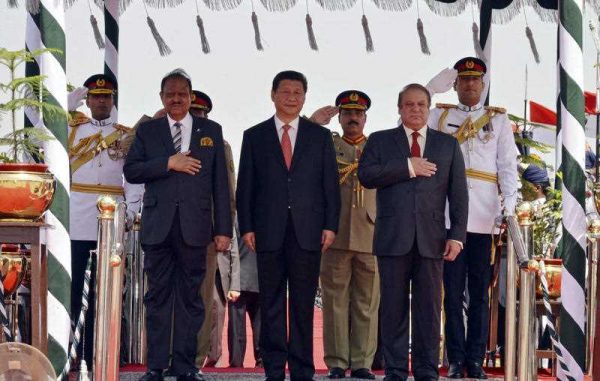This ambitious mega-project intends to link China’s Kashgar to Gwadar Port in Pakistan through a network of roads. Both sides are also planning railways, pipelines and fibre optic networks. This is the largest deal in the history of two countries. If the implementation of the CPEC moves smoothly, China may double its investment.
Pakistan has been going through an unabated challenge with terrorism and chronic political instability. Yet, China still decided to undertake this mega-investment, which shows its deep stake in Pakistan. The changing geopolitical environment might shed a light on this audacious decision.
The gravity of world politics is shifting from the West to Asia, with China at its centre. This has increased competition between the US (the established superpower) and China (the rising power) who are both seeking to gain a strategic foothold, especially in the Asia Pacific region. The US’s ‘pivot to Asia’ strategy, intensifying territorial disputes in the South China Sea and a resurging Japan under Prime Minister Shinzo Abe are all ringing Chinese alarm bells.
China is looking for allies in the region, and finds Pakistan is its most reliable partner. This relationship is grounded in geographical proximity, common security outlooks toward the region and ‘trust’ built over decades. China is also motivated by a desire to help Pakistan restore its ‘glorious’ past.
China and Pakistan’s interests are converging in the changing geopolitical environment. Beijing wants to assert its sphere of influence in South Asia, the Middle East, get an access to the Indian Ocean and beyond. China also needs support against separatism in Xinjiang and is seeking to develop its Western region. To achieve some of those objectives, China has unveiled the One Belt, One Road project that will ultimately connect it with over 60 countries. Under this project, China will build a web of networks such as the Bangladesh–China–India–Myanmar Economic Corridor, the Silk Road in Central Asia, the 21st Century Maritime Silk Road and the CPEC.
The CPEC is the flagship of these projects. It acts as a bridge between land and sea, involves only one other country (Pakistan), and gives China the quickest route to the Indian Ocean and beyond. The CPEC will complement China’s desire to modernise its Western region and deal with separatists in Xinjiang. For the terrorism-hit Pakistan, the CPEC could bring huge investment, infrastructural development, China’s political and diplomatic support at international fronts.
China’s economic assistance is also backed by strong defence ties. Within days of Xi’s visit, China announced the supply of 50 JF-17 aircraft, jointly produced by China and Pakistan. The two sides have also finalised the largest defence deal for either side: six Chinese nuclear-capable submarines worth US$4–6 billion. China has already become Pakistan’s largest arms suppliers and meets over 50 per cent Pakistan’s weapons needs.
China’s renewed engagement with Pakistan is not directed against India as is generally perceived. That might be Pakistan’s wish, and the concern of some Indian and Western spectators, but it does not seem to be China’s intention. Since the late 1980s, Beijing has separated its relationship with Pakistan from its relationship with India. China deals with each country independently. China looks at South Asia from a long-term perspective, and is not focused on the Indo–Pakistan rivalry. A stable South Asia and improved India–Pakistan relations will also serve China’s interest more than any other big power.
Based on its geo-strategic location, Pakistan has acquired a new importance in Beijing’s long-term strategy. This can be seen in China’s bold investment in mega projects and burgeoning defence ties between the two nations. Given the high stakes, this will likely increase China’s influence in Pakistan. Unlike in the past, Beijing may now take stand on issues affecting its interests.
At the same time Islamabad is cognisant that in the wake of a partial withdrawal from Afghanistan, relations with the US may enter into another phase of uncertainty. Islamabad has thus shown alacrity in intensifying ties with China, especially through a commitment to the early implementation of the CPEC. This deep congruence of mutual interests guarantees a durable Sino–Pakistani relationship into the future.
Ghulam Ali is a Postdoctoral Fellow at Peking University, Beijing. Views expressed in this article are the author’s own.

